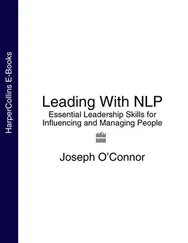John Gray - Children Are from Heaven - Positive Parenting Skills for Raising Cooperative, Confident, and Compassionate Children
Здесь есть возможность читать онлайн «John Gray - Children Are from Heaven - Positive Parenting Skills for Raising Cooperative, Confident, and Compassionate Children» весь текст электронной книги совершенно бесплатно (целиком полную версию без сокращений). В некоторых случаях можно слушать аудио, скачать через торрент в формате fb2 и присутствует краткое содержание. Год выпуска: 1999, ISBN: 1999, Издательство: HarperCollins e-books, Жанр: psy_childs, sci_pedagogy, Психология, на английском языке. Описание произведения, (предисловие) а так же отзывы посетителей доступны на портале библиотеки ЛибКат.
- Название:Children Are from Heaven: Positive Parenting Skills for Raising Cooperative, Confident, and Compassionate Children
- Автор:
- Издательство:HarperCollins e-books
- Жанр:
- Год:1999
- ISBN:978-0-06-133886-1
- Рейтинг книги:4 / 5. Голосов: 1
-
Избранное:Добавить в избранное
- Отзывы:
-
Ваша оценка:
- 80
- 1
- 2
- 3
- 4
- 5
Children Are from Heaven: Positive Parenting Skills for Raising Cooperative, Confident, and Compassionate Children: краткое содержание, описание и аннотация
Предлагаем к чтению аннотацию, описание, краткое содержание или предисловие (зависит от того, что написал сам автор книги «Children Are from Heaven: Positive Parenting Skills for Raising Cooperative, Confident, and Compassionate Children»). Если вы не нашли необходимую информацию о книге — напишите в комментариях, мы постараемся отыскать её.
Children Are from Heaven: Positive Parenting Skills for Raising Cooperative, Confident, and Compassionate Children — читать онлайн бесплатно полную книгу (весь текст) целиком
Ниже представлен текст книги, разбитый по страницам. Система сохранения места последней прочитанной страницы, позволяет с удобством читать онлайн бесплатно книгу «Children Are from Heaven: Positive Parenting Skills for Raising Cooperative, Confident, and Compassionate Children», без необходимости каждый раз заново искать на чём Вы остановились. Поставьте закладку, и сможете в любой момент перейти на страницу, на которой закончили чтение.
Интервал:
Закладка:
Teens seek out their parents’ support
if parents know how to give them what
they need.
Many teens today are rebellious because parents have used fear-based parenting skills. As soon as parents stop using punishment and other fear-based parenting skills and begin adopting positive-parenting skills, the need to rebel goes away. Even positive-parenting skills will not work if parents continue to control too much. Parents of teens are still required to give their teens more and more freedom. If not enough freedom is given, then once again their teens may rebel. To decrease resistance in teens, parents must always balance freedom and control.
IMPROVING COMMUNICATION WITH TEENS
With teens, parents must be careful to not offer unsolicited advice. Teens have just developed their ability to think abstractly and form their own opinions. They now have the ability to consider another’s point of view, but first they need to have someone to hear and consider their opinions. Even if they ask you what you think, don’t answer before first asking them what they think.
Taking time to have conversations with teens on other topics besides what you want them to do will minimize their need to resist your control. At this stage, they need to argue and express their unique or different opinions. Talk with them about what they are studying in history and social studies and hear their opinions.
Teens need to assert a different point of view. Even when you don’t agree with their point of view, you can at least appreciate their logic. You might say, “I would never have thought of that,” or “Well, I don’t agree, but that sure makes good sense,” or “That’s the good thing about America, everyone has the right to his own opinion.”
Even when you don’t agree with their point of view, you can at least appreciate their logic.
Give your teens the opportunity to experience your open-mindedness in another context besides the issue of how late they can stay out. They will learn that it is okay to disagree and have different opinions through your appreciation of their logic and opinions. This is an important experience. If you are open to their opinions, they will not be so demanding when it comes to expecting more freedom than they are ready for.
Unless given the opportunity to disagree about current events, they will feel a need to disagree with you personally.
Give your teens the opportunity to experience
your open-mindedness in another context besides
the issue of how late they can stay out.
Resistant teens don’t want to be told what to do. Before using the command skills of asserting leadership, parents first need to hear the logic of a teen’s objections. A parent can then say, “I understand you think you should be able to get a tattoo. I hear that everyone else is doing it. I will consider what you are saying, but right now I want you to wait until you are eighteen to decide about getting a tattoo.”
Teens have a much greater sense of justice and fairness than younger children. When parents behave like dictators, teens are sure to rebel. Listening and working together to decide about how much freedom a teen should be allowed will strengthen the bond between parents and teens.
Before giving a command, parents should first ask for cooperation, listen to the teen’s resistance, and respect the teen’s opinion. Then parents can express what they want, which might sound like this, “I understand you believe this is not fair. You want to spend time with your friends, and I want you to be here to see your cousins. I know you don’t want to do this, but this is important to me. I want you to be there. I want you to be friendly and polite to them for two hours, and then you are free to go.”
RESPECT YOUR TEEN’S OPINIONS
It is always best to move teenagers in the direction of forming and expressing their own opinions regarding why you want certain things, but not why you feel what you feel. It is not healthy to ask, “Do you know how that makes me feel?”
Expressing your feelings will just have the effect of making the child stop listening or feel guilty. Most kids today will hear a guilt trip and turn the other direction. Remember children up to age eighteen depend on parents; they are not responsible for how parents feel, though they can develop an understanding of why you want what you want. When a teen resists your requests, rather than lecture, get him or her to talk. Ask, “Why do you think I want you to do this?”
To maintain control parents should make sure that they don’t expect their children to agree with them. Teenagers especially need the freedom to think differently and form their own opinions. This is an important stage of their development. If you don’t demand obedience or agreement, they don’t have to rebel. With positive parenting, it is okay to disagree, but always remember that, in the end, mom and dad are still the bosses.
Teenagers especially need the freedom
to think differently and form their
own opinions.
Parents need to remember that it is more important to keep their children talking to them than alienating them by giving too much advice or criticism. Parents need to be sensitive to feel when their children are really asking for advice and when they are testing them to see if they can still talk to them.
If your teen comes home from school telling stories about kids breaking the rules, behaving disrespectful, or engaging in inappropriate sex, parents have to be careful to exercise restraint and not immediately begin preaching, teaching, correcting, or threatening.
In each of the following examples, notice what your first reaction would be, and then reflect on another way you could respond that would ensure that your teen continues to talk with you:
• Harry was cheating today on his math test.
• Tina was cussing out her boyfriend right in front of everyone.
• Chris was skipping class and making out in the audio-visual room today.
• I hit Roger today when he kept pulling on my hair.
• I think Mr. Richards is really stupid and boring. He expects way too much from us.
• Susan was really tired today. She stayed out all last night getting stoned.
When teens make these or similar statements they are testing to see if they can really talk, or if you are going to begin preaching, teaching, controlling, or correcting them or their friends. Instead of reacting directly, parents first need to ask the teen what he or she thinks. Then the parent could ask, “What do you think I think about that?” Remember teens will keep talking to you if you keep listening to what they think.
Instead of responding directly, parents first
need to ask teens what they think.
If a parent immediately begins correcting a teen’s thinking and behavior or starts calling other parents and teachers to address the problem, the teen will stop talking. Instead of reacting to solve the problem, parents need first to stop and hold back from giving advice. Keep listening, and try to remember some of the things you did as a teenager.
It is more important to keep the lines of communication open than to do anything about problems. To maintain influence over your teens, they must feel their connection, and that occurs primarily when they feel heard by their parents.
After hearing about the events of the day, sometimes something may need to be done. Maybe a particular child is having inappropriate sex or speaking in a mean way and their parents should be warned. Parents must be careful to not just take action and do something about it. They should first ask their teen what they think should be done about it. By listening to what your teen thinks should be done, then they will be more receptive to what you think. If something needs to be done, the two of you can figure out together an appropriate action.
Читать дальшеИнтервал:
Закладка:
Похожие книги на «Children Are from Heaven: Positive Parenting Skills for Raising Cooperative, Confident, and Compassionate Children»
Представляем Вашему вниманию похожие книги на «Children Are from Heaven: Positive Parenting Skills for Raising Cooperative, Confident, and Compassionate Children» списком для выбора. Мы отобрали схожую по названию и смыслу литературу в надежде предоставить читателям больше вариантов отыскать новые, интересные, ещё непрочитанные произведения.
Обсуждение, отзывы о книге «Children Are from Heaven: Positive Parenting Skills for Raising Cooperative, Confident, and Compassionate Children» и просто собственные мнения читателей. Оставьте ваши комментарии, напишите, что Вы думаете о произведении, его смысле или главных героях. Укажите что конкретно понравилось, а что нет, и почему Вы так считаете.












